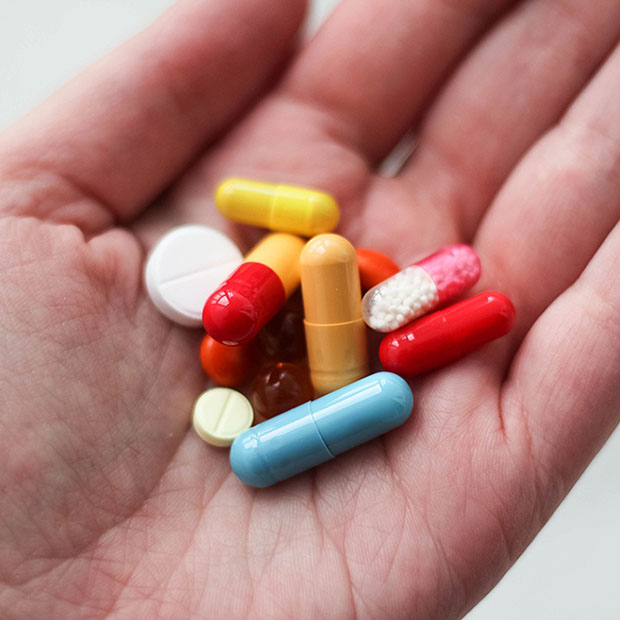The Ways Medicine Affects Oral Health

Every medication comes with a list of potential side effects.
Sometimes those side effects include a negative impact on oral health.
The Chemistry Of Medicine And The Mouth
Certain medications and vitamins can be pretty hard on our teeth, even for the short time they’re in our mouths. As adults, we swallow most of our medicines in pill form, so we don’t have to worry about these problems, but it can be an issue for children. Medicine for kids often comes in the form of sweet syrup and multivitamins, and the sugars in them feeds oral bacteria and leads to tooth decay.
Another culprit is asthma inhalers, which can lead to oral thrush — white patches of fungus on the tongue, inside the cheeks, and other oral tissues. These can be irritating or painful. The best way to prevent this complication from inhaler use is for the patient to rinse with water after every use. Rinsing is a good idea for those sugary cough syrups and multivitamins too.
Oral Side Effects
Just because a pill can’t hurt your mouth directly while you’re swallowing it doesn’t mean it won’t have side effects that impact your mouth later on.
- Medications containing blood thinning components can lead to bleeding gums after brushing.
- Several medications have a side effect of causing inflammation in the gum tissue, which increases the risk of gum disease.
- Heart medications, nervous system stimulants, and anti-inflammatory drugs can affect our sense of taste, leaving a bitter or metallic taste in the mouth or causing changes in general. As unpleasant as it can be, this isn’t usually a serious side effect.
- In rare cases, osteoporosis treatment drugs can compromise the bone tissue in the jaw, increasing the risk of gum recession and tooth loss.
The most common oral side effect of both over-the-counter and prescribed medications is dry mouth. This is a dangerous one because we need saliva to protect our teeth and oral tissues from bacteria. Without saliva, we are much more vulnerable to tooth decay and gum disease.
Make Sure We Know About Your Medications
It’s important to be aware of these side effects and to keep your doctor and your dentist in the loop if any of them occur. Prescriptions can sometimes be adjusted to minimize negative effects, but only if your health care professionals know what’s going on!
